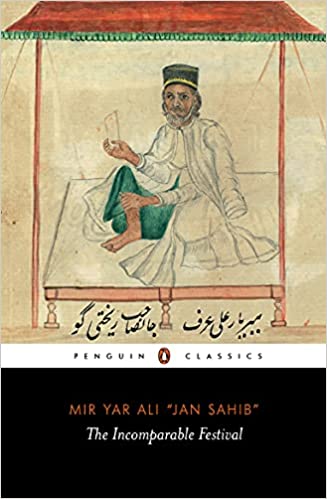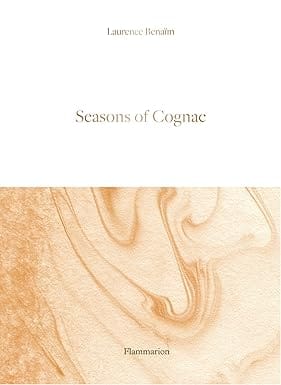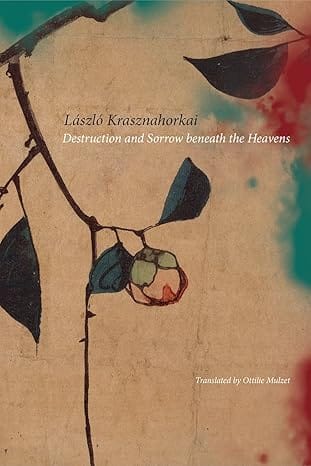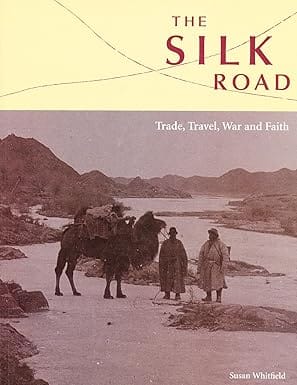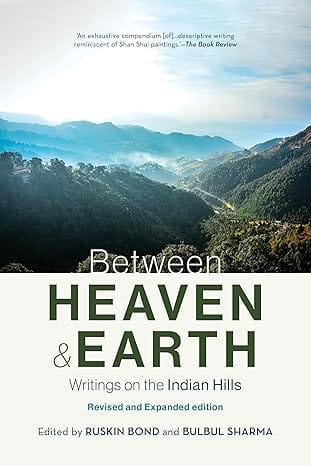- Non-ficton
- Non-ficton
- Contemporary Fiction
- Contemporary Fiction
- Children
- Children
- Comics & Graphic Novels
- Comics & Graphic Novels
- Non-Fiction
- Non-Fiction
- Fiction
- Fiction
An indispensable translation of Jan Sahib's poetic ethnography of nineteenth-century performers-Pasha M. Khan, chair in Urdu Language and Culture, McGill University
This is a truly extraordinary work, an important contribution to the cultural history of the subcontinent-Muneeza Shamsie, writer and literary critic
The translation is experimental, challenging traditional expectations in its approach to rhyme and meter-Carla Petievich, South Asia Institute, The University of Texas at Austin
The Incomparable Festival (Musaddas Tahniyat-e-Jashn-e-Benazir) by Mir Yar Ali (whose pen name was Jan Sahib) is a little known but sumptuous masterpiece of Indo-Islamic literary culture, presented here for the first time in English translation. The long poem, written in rhyming sestet stanzas, is about the royal festival popularly called jashn-e-benazir(the incomparable festival), inaugurated in 1866 by the Nawab Kalb-e-Ali Khan (r. 1865-87) with the aim of promoting art, culture and trade in his kingdom at Rampur in northern India. The task of commemorating the sights and wonders of the festival was given to the hugely popular writer of rekhti verse, the tart and playful sub-genre of the ghazal, reflecting popular women's speech, of which Jan Sahib is one of the last practitioners.
Structured as an ode to the nawab, the poem is a world-album depicting various classes on the cusp of social upheaval. They include the elite, distinguished artists and commoners, brought together at the festivities, blurring the distinction between poetry, history and biography, and between poetic convention and social description. The book is a veritable archive of the legendary khayal singers, percussionists, and instrumentalists, courtesans, boy-dancers, poets, storytellers (dastango) and reciters of elegies (marsiyago). But, above all, the poem gives voice to the 'lowest' denizens of the marketplace by bringing to light their culinary tastes, artisanal products, religious rituals and beliefs, and savoury idioms, thereby focusing on identities of caste and gender in early modern society.
This Penguin Classics edition will be of interest not just to the Urdu and Hindi literary historian, but to specialists and readers interested in the histories of music, dance, and the performative arts, as well as scholars of gender and sexuality in South Asia. Lovers of Urdu poetry will find in it a forgotten masterpiece.
Review
An indispensable translation of Jan Sahib's poetic ethnography of nineteenth-century performers. Musicians and dancers, sex workers, hijras, storytellers and reciters of poetry of transvestism and lament come alive in this long-needed source. -- Pasha M. Khan, chair in Urdu Language and Culture, McGill University
This volume represents an important expansion of the notion of rekhti going well beyond what previous scholarship and literary translations have offered up. The translation is experimental, challenging traditional expectations in its approach to rhyme and meter. Some might be tempted to call it a transcreation. But whatever we call it, it mirrors the (sometimes serious) playfulness of the carnival and offers its own entertainment value. -- Carla Petievich, South Asia Institute, The University of Texas at Austin
About the Author
Razak Khan is a Research Fellow at the Centre for Modern Indian Studies, University of Göttingen. He has edited special issues of the Journal of the Economic and Social History of the Orient (2015) and Comparative Studies in South Asia, Africa and the Middle East (2020). His book Minority Pasts: Locality, Emotions and Belonging in Rampur is forthcoming from Oxford University Press.
Shad Naved teaches Comparative Literature and Translation Studies at Ambedkar University Delhi. He recently translated The Hindi Canon: Intellectuals, Processes, Criticism for Tulika Books (2019). He runs a poetry blog, Poetry in the Indo-Islamic Millenium (indoislamicpoetry.com) and is completing a book on literary queerness in the ghazal.
- Home
- Travel & Tourism
- The Incomparable Festival (A masterpiece of Indo-Islamic literary culture)
The Incomparable Festival (A masterpiece of Indo-Islamic literary culture)
SIZE GUIDE
- ISBN: 9780670093823
- Author: Mir Yar Ali “Jan Sahib” Sahib”, Razak Khan
- Publisher: Penguin Classics
- Format: Paperback
- Pages: 224
Book Description
An indispensable translation of Jan Sahib's poetic ethnography of nineteenth-century performers-Pasha M. Khan, chair in Urdu Language and Culture, McGill University
This is a truly extraordinary work, an important contribution to the cultural history of the subcontinent-Muneeza Shamsie, writer and literary critic
The translation is experimental, challenging traditional expectations in its approach to rhyme and meter-Carla Petievich, South Asia Institute, The University of Texas at Austin
The Incomparable Festival (Musaddas Tahniyat-e-Jashn-e-Benazir) by Mir Yar Ali (whose pen name was Jan Sahib) is a little known but sumptuous masterpiece of Indo-Islamic literary culture, presented here for the first time in English translation. The long poem, written in rhyming sestet stanzas, is about the royal festival popularly called jashn-e-benazir(the incomparable festival), inaugurated in 1866 by the Nawab Kalb-e-Ali Khan (r. 1865-87) with the aim of promoting art, culture and trade in his kingdom at Rampur in northern India. The task of commemorating the sights and wonders of the festival was given to the hugely popular writer of rekhti verse, the tart and playful sub-genre of the ghazal, reflecting popular women's speech, of which Jan Sahib is one of the last practitioners.
Structured as an ode to the nawab, the poem is a world-album depicting various classes on the cusp of social upheaval. They include the elite, distinguished artists and commoners, brought together at the festivities, blurring the distinction between poetry, history and biography, and between poetic convention and social description. The book is a veritable archive of the legendary khayal singers, percussionists, and instrumentalists, courtesans, boy-dancers, poets, storytellers (dastango) and reciters of elegies (marsiyago). But, above all, the poem gives voice to the 'lowest' denizens of the marketplace by bringing to light their culinary tastes, artisanal products, religious rituals and beliefs, and savoury idioms, thereby focusing on identities of caste and gender in early modern society.
This Penguin Classics edition will be of interest not just to the Urdu and Hindi literary historian, but to specialists and readers interested in the histories of music, dance, and the performative arts, as well as scholars of gender and sexuality in South Asia. Lovers of Urdu poetry will find in it a forgotten masterpiece.
Review
An indispensable translation of Jan Sahib's poetic ethnography of nineteenth-century performers. Musicians and dancers, sex workers, hijras, storytellers and reciters of poetry of transvestism and lament come alive in this long-needed source. -- Pasha M. Khan, chair in Urdu Language and Culture, McGill University
This volume represents an important expansion of the notion of rekhti going well beyond what previous scholarship and literary translations have offered up. The translation is experimental, challenging traditional expectations in its approach to rhyme and meter. Some might be tempted to call it a transcreation. But whatever we call it, it mirrors the (sometimes serious) playfulness of the carnival and offers its own entertainment value. -- Carla Petievich, South Asia Institute, The University of Texas at Austin
About the Author
Razak Khan is a Research Fellow at the Centre for Modern Indian Studies, University of Göttingen. He has edited special issues of the Journal of the Economic and Social History of the Orient (2015) and Comparative Studies in South Asia, Africa and the Middle East (2020). His book Minority Pasts: Locality, Emotions and Belonging in Rampur is forthcoming from Oxford University Press.
Shad Naved teaches Comparative Literature and Translation Studies at Ambedkar University Delhi. He recently translated The Hindi Canon: Intellectuals, Processes, Criticism for Tulika Books (2019). He runs a poetry blog, Poetry in the Indo-Islamic Millenium (indoislamicpoetry.com) and is completing a book on literary queerness in the ghazal.
User reviews
NEWSLETTER
Subscribe to get Email Updates!
Thanks for subscribing.
Your response has been recorded.

India's Iconic & Independent Book Store offering a vast selection of books across a variety of genres Since 1978.
"We Believe In The Power of Books" Our mission is to make books accessible to everyone, and to cultivate a culture of reading and learning. We strive to provide a wide range of books, from classic literature, sci-fi and fantasy, to graphic novels, biographies and self-help books, so that everyone can find something to read.
Whether you’re looking for your next great read, a gift for someone special, or just browsing, Midland is here to make your book-buying experience easy and enjoyable.
We are shipping pan India and across the world.
For Bulk Order / Corporate Gifting
 +91 9818282497 |
+91 9818282497 |  [email protected]
[email protected]
Click To Know More
QUICK LINKS
ADDRESS
Shop No.20, Aurobindo Palace Market, Near Church, New Delhi

